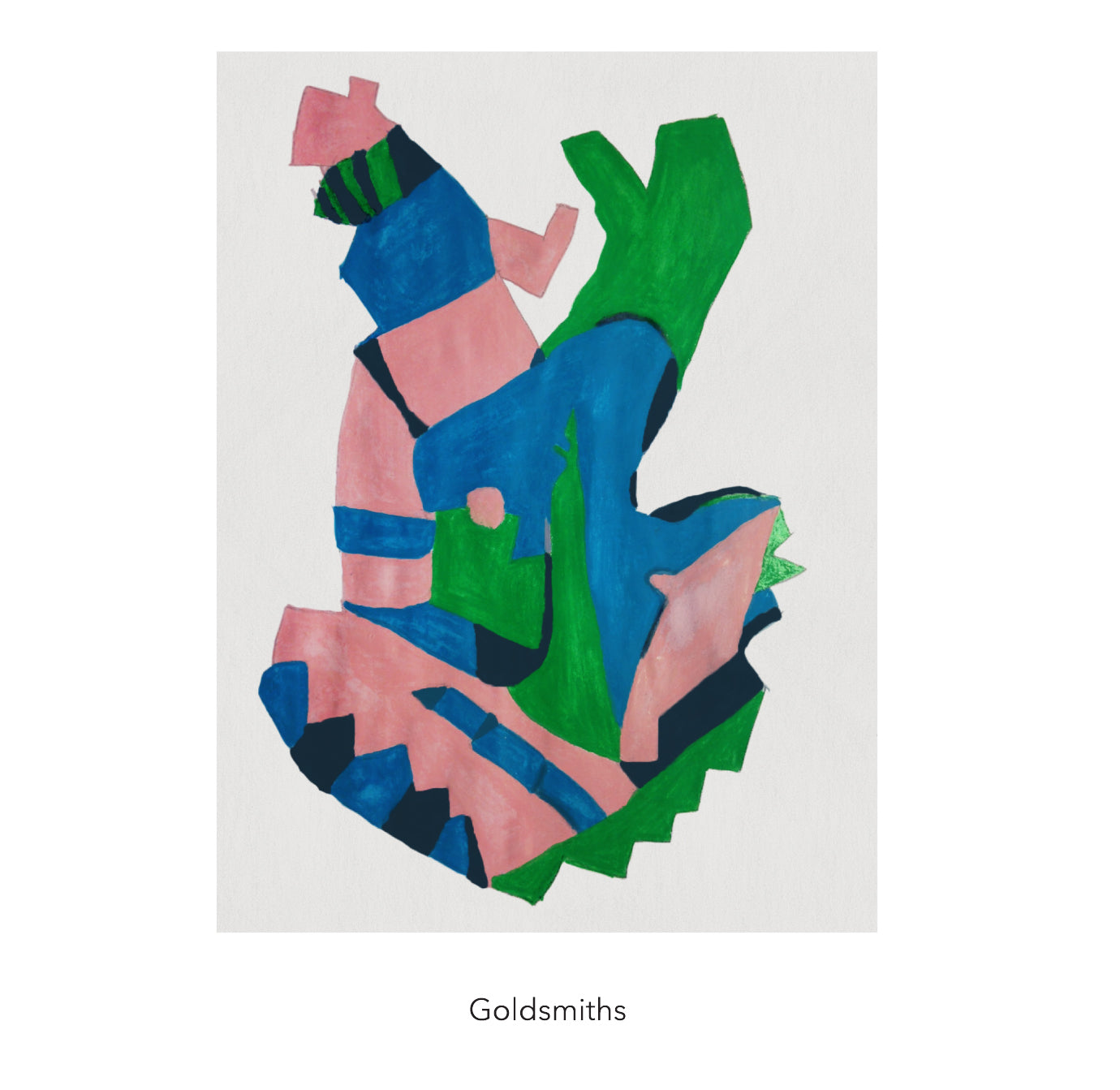at92
Goldsmiths
works by Sarah Hughes, John Lely & Jürg Frey
Goldsmiths
Featuring: Goldsmiths John Lely John Tilbury Jurg Frey
Couldn't load pickup availability
1 - Sarah Hughes ‘A Reward is given for the Best Inframammary Fold No.4’
(2015) 13:09
2 - John Lely ‘First Page for Five’ (2015) 17:59
3 - Goldsmiths Improvisation, 31.08.15 19:43
4 - Jurg Frey ‘Circular Music No.6’ (2015) 7:00
Angharad Davies - violin Rhodri Davies - electric harp, melodica
Michael Duch - double bass Lina Lapelyte - violin, voice
John Lely - objects, electronics, melodica John Tilbury - piano
Recorded at Goldsmiths College, 31st August 2015
Rhodri Davies convened a recording session in London. In the afternoon he, John Tilbury and Michael Duch were due to record some pieces by Cornelius Cardew. But in the morning he invited Angharad Davies, Lina Lapelyte and John Lely to join the trio for an impromptu session recording a number of open scores by various composers, plus a couple of improvisations. The 'Goldsmiths' CD was the result of that morning session.
Reviews
“Another classy release from Another Timbre, which has drifted away from improvisation towards composition – witness their bestselling box ‘Wandelweiser und so weiter’ - while often still featuring the same musicians. ‘Goldsmiths’ offers a nice balance of both music-making methods: a trio of compositions plus a gorgeous 20 minute improve by the whole group.
Fans of odd titles get a treat from Sarah Hughes: ‘A Reward Is Given For The Best Infra-Mammary Fold No4’ sounds like a quote from a junior doctors’ rag mag. Rather than faintly covering the space, like some of Antoine Beuger’s music, Hughes’s piece occupies it fully, as instruments move from melodic events to hovering chords that build in intensity. John Tilbury’s piano adds rich colour to the strings (Angharad Davies and Lina Lapelyte on violins, Michael Duch on bass). Meanwhile John Lely’s electronics hang a backdrop and Rhodri Davies supplies subtle magic of the what-the-heck-is-he-doing kind,
Lely co-runs the London concert series Music We’d Like To Hear. His ‘First Page for Five’ is a systematic progression of staggered string and melodica chords. It’s a conceptually clear way of writing that connects with the English experimental tradition embodied by Michael Parsons. Beauty is achieved by pitting the slightly inhuman system of the composing against the very human and fragile performance.
Tilbury returns for the flatly titled ‘Goldsmiths Improvisation’, which is maybe the disc’s highpoint. Finally Jürg Frey’s ‘Circular Music No.6’ is a journey through a super-delicate undergrowth of noises. The Swiss composer is an old Wandelweiser hand, and a decade ago his ‘Unhörbare Zeit’ was a cauldron of restraint for string quartet and percussion. The current piece is a deceptively simple mix of circular scraping motions, plus Lapelyte’s beautifully performed, hardly there vocalisation. Quiet but headspinning.”
Clive Bell, The Wire
“Goldsmiths is a British college and the great reunion of Angharad Davies, Rhodri Davies, Michael Duch, Lina Lapelyte, John Lely and John Tilbury. Some of them are pretty young, the others play for decades. All of them are interested in composition, improvisation and experimental music, so it was natural to realize Sarah Hughes and Jürg Frey's pieces, a John Lely work and a long time improvisation together. All these works are delicate, quiet, pretty melodic and cyclic, and very well played.”
Julien Heraud, Improv-sphere
“For the last fifty-odd years there’s been a grey area between what is composed and what is improvised. At home, I’ve been listening to some more new CDs from Another Timbre. Goldmsiths is a neat collection of four pieces for an ensemble of exceptional musicians equally adept at playing from a score or making it up. Everything is new, from last year: a piece each by Jürg Frey, Sarah Hughes and John Lely, and an improvisation. The pieces here alternate from being governed by a relatively strict, reductive principle of organisation (Frey, Lely) to music which opens up room for wider interpretation (Hughes). The improvisation is, theoretically, entirely free, but here the situation is not so simple.
The musicians take the same “hazardous course” described by John Tilbury in yesterday’s post (and Tilbury is the pianist on this disc.) They respond to the immediate circumstances of the musical situation with keen awareness of mood and a sureness of touch. Their performances of Frey’s Circular Music No. 6 and Lely’s First Page for Five are subtly coloured with a sustained sense of atmosphere.
Although it is more diverse in its material, the improvisation could easily be taken as a composed work, of a piece with the rest of the programme. This feeling is compounded by the opening work, Sarah Hughes’ A Reward is given for the Best Inframammary Fold No. 4, which sounds as though it may be a companion improvisation. The piece is in fact composed, with a determined structure, contrasts, gestures and harmonic material all specified. How the contents of this structure are to be presented is left to the musicians. Here, the music flows and ebbs as though through a spontaneous collective activity, even though these elements and overall scheme were determined in advance by the composer.
In the improvisation, with no hierarchy, the musicians must find their own constraints. They do a remarkable job of falling into the background when needed, providing tiny but essential shading that gives the music life. This becomes particularly clear in the strange, affecting coda.” Ben Harper, Boring like a drill

